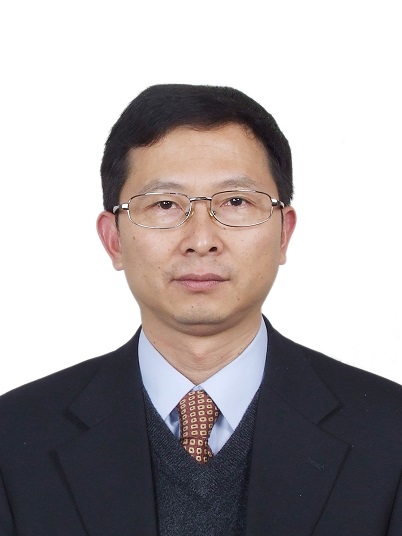 Song Gao, Peking University, China
Song Gao, Peking University, China
Song Gao got his BS and PhD in chemistry at Peking University (PKU) in 1985 and 1991, and then worked at PKU till now. He was a Humboldt Research Fellow in TH Aachen from 1995 to 1997. He has been Cheung Kong Professor in College of Chemistry and Molecular Engineering at Peking University since 2002, and served as dean of this college in 2006-2010. He is now PKU Provost and deputy director of Beijing National Laboratory for Molecular Sciences. He received State Natural Science Award (the 2nd Grade) in 2006 because of his contribution in magnetic coordination polymers and molecular nanomagnets. He was elected as member of Chinese Academy of Sciences in 2007. In the same year, he became a Fellow of the Royal Society of Chemistry (UK). He is member of Editorial Advisory Board for Chem. Soc. Rev., Chemical Science, and Inorganic Chemistry etc., and Editor-in-Chief of Inorganic Chemistry Frontiers. His research interests are magnetic ordered coordination polymers, molecular nanomagnets, molecular and crystal engineering, and multifunctional molecular materials.
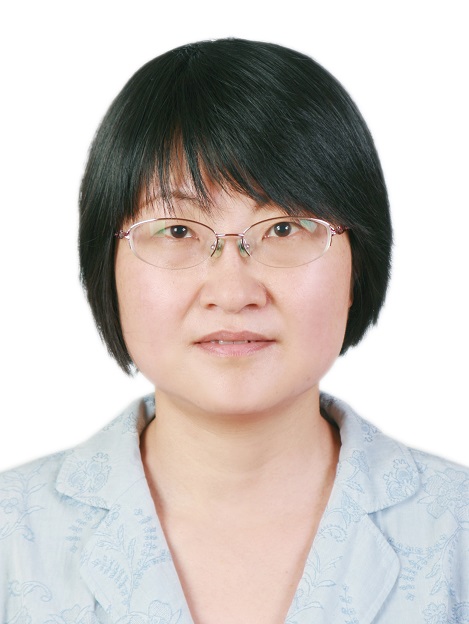 Yi Xie, University of Science and Technology of China, China
Yi Xie, University of Science and Technology of China, China
Dr. Yi Xie received her BS in Xiamen University (1988) and Ph.D at University of Science and Technology of China (1996). She is now a Principal Investigator (PI) of Department of Nanomaterials and Nanochemistry, Hefei National Laboratory for Physical Sciences at Microscale and a full professor of Department of Chemistry, University of Science and Technology of China. She was appointed as the Cheung Kong Scholar Professor of inorganic chemistry in 2000, also a recipient of many awards, including China Young Scientist Award (2002), China Young Female Scientist Award (2006) and IUPAC Distinguished Women in Chemistry/Chemical Engineering Award (2013). Her research interests are in solid state and materials chemistry.
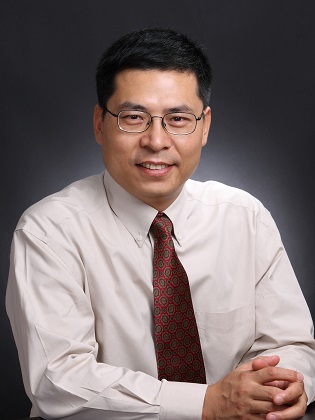 Zhiping Zheng, University of Arizona, United States
Zhiping Zheng, University of Arizona, United States
Zhiping Zheng received his B.S. (1987) and M.S. (1990) degrees in chemistry from Peking University, China, and his Ph.D. from UCLA in 1995 with Professor M. Frederick Hawthorne. After conducting postdoctoral research with Professor Richard H. Holm at Harvard University, he joined the faculty of the University of Arizona in 1997, where he is now Professor of Chemistry. His current research interests include the synthetic and structural chemistry of cluster compounds of both lanthanide and transition metal elements. His contributions in research and teaching have been recognized by a number of awards, including the US National Science Foundation CAREER Award, International Junior Research Award from the European Rare Earths and Actinide Society, the IUPAC Young Observer, and Teaching Excellence from the Honors College, University of Arizona. He serves on the Advisory Board of Crystal Growth and Design, and is also an Overseas Managing Editor for the Journal of Rare Earths.
 Oleg Ozerov, Texas A&M University, United States
Oleg Ozerov, Texas A&M University, United States
Oleg Ozerov was born in Novosibirsk, Russia in 1976 and spent his formative years there, and in Moscow, Russia. He received his undergraduate training at the Higher Chemical College of the Russian Academy of Sciences. In 1996, Oleg moved to the United States to attend graduate school at the University of Kentucky where he worked with Prof. Folami Ladipo on the chemistry of titanium complexes supported by calix[4]arene-derived arylooxides. After receiving his Ph.D. degree in 2000, Oleg spent two years as a postdoctoral associate in the group of Prof. Ken Caulton at Indiana University investigating new chemistry of ruthenium and rhenium in a pincer ligand context. In the summer of 2002, Oleg joined the Department of Chemistry at Brandeis University as an assistant professor of chemistry and earned promotion to associate professor with tenure in 2006. In January of 2009, Oleg relocated to Texas A&M University where he is now Professor of Chemistry and Coordinator of Graduate Recruiting. His research interests are in synthetic organometallic chemistry and its diverse applications in catalysis and energy-related problems. Oleg has been honored with the Alfred P. Sloan Research Fellowship (2006), the Camille Dreyfus Teacher-Scholar Award (2007), the ACS Award in Pure Chemistry (2012), and the Norman Hackerman Award in Chemical Research (2012).
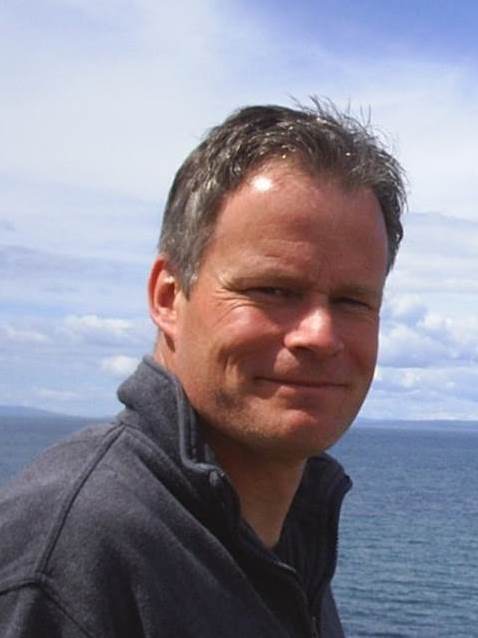 John McGrady, Oxford University, United Kingdom
John McGrady, Oxford University, United Kingdom
John McGrady gained a BA in chemistry from the University of Oxford in 1990, and then pursued doctoral studies at the Australian National University, Canberra. Following postdoctoral positions in the UK, France and Australia, he took up his first academic post at the University of York in 1997and then moved to the University of Glasgow as WestCHEM chair of chemistry in 2006. 1n 2009 he took up his current position at the University of Oxford, where he is Professor of Computational Inorganic Chemistry and a Fellow of New College. His research interests revolve around the use of quantum mechanics to explore the properties of inorganic molecules and solids, particularly those containing paramagnetic transition metal ions.
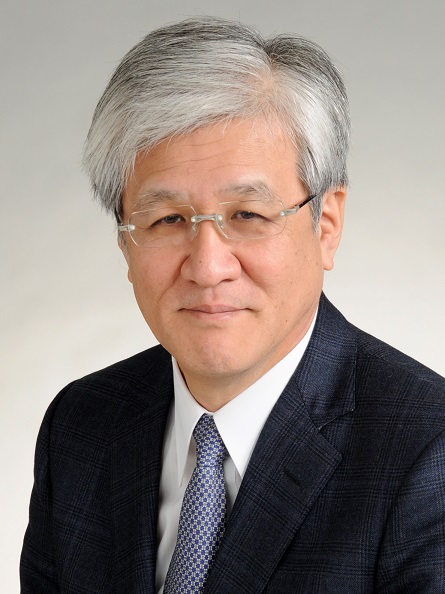 Hiroki Oshio, University of Tsukuba, Japan
Hiroki Oshio, University of Tsukuba, Japan
Hiroki Oshio graduated from Kyushu University in 1977 and obtained his Ph.D. in 1982. After a postdoctoral fellowship at Marquette University between 1982 and 1984, he was appointed as a research associate at the Institute for Molecular Science (Okazaki, Japan) in 1985. In 1992 he moved to Tohoku University as an Associate Professor, before he was appointed as a Professor at the University of Tsukuba in the Graduate School of Pure and Applied Sciences in 2001. His research has focused on molecular magnetism, including bistable and spin-crossover systems. He has received an award of The CSJ Award for Creative Work (2005) and has accumulated over 200 peer-reviewed research publications.
 Hiroshi Kitagawa, Kyoto University, Japan
Hiroshi Kitagawa, Kyoto University, Japan
Hiroshi Kitagawa finished his Ph.D course in 1991 and received his Ph.D. from Kyoto University in 1992. He moved to Institute for Molecular Science as an assistant professor in 1991, Japan Advanced Institute of Science & Technology as an assistant professor in 1994, University of Tsukuba as an associate professor in 2000, and Kyushu University as a professor in 2003. In 2009, he returned back to the original laboratory at Kyoto University. He held a visiting appointment at Davy-Faraday Research Laboratory, Royal Institution of Great Britain (1993-1994). He was a chair of the 5th Chemical Sciences and Society Summit, 2013. He is also engaged at Japan Science & Technology Agency as a Research Director of ACCEL and a Research Supervisor of Science and Creation of Innovative Catalysts, PRESTO. His research fields are solid-state chemistry, coordination chemistry, nano-science, low-dimensional electron system, and molecule-based conductors.
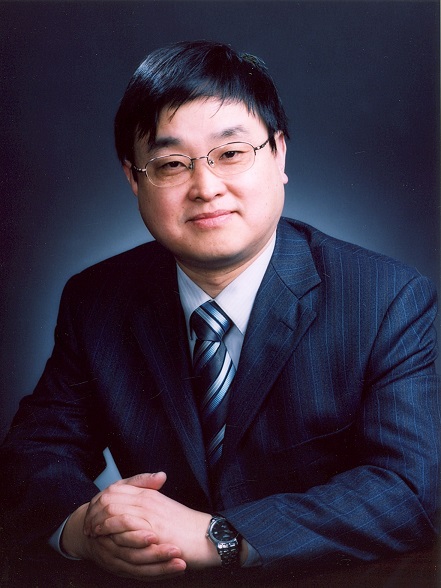 Zijian Guo, Nanjing University, China
Zijian Guo, Nanjing University, China
Zijian Guo was born in Hebei, China in 1961. After receiving his PhD degree from the University of Padua in 1994, he worked as a postdoc fellow at the University of London, the University of British Columbia and the University of Edinburgh successively. He joined Nanjing University as a professor in 1999 and served as the director of the State Key Laboratory of Coordination Chemistry from 2000 to 2009 and the dean of the School of Chemistry and Chemical Engineering from 2006 to 2014. He is currently the Changjiang professor in the same school of Nanjing University. His research interests include the metal-based anticancer complexes, fluorescent sensors for biorelated metal cations, and metal-based artificial nucleases and proteases.
 Qiangbin Wang, Suzhou Institute of Nano-Tech and Nano-Bionics, CAS, China
Qiangbin Wang, Suzhou Institute of Nano-Tech and Nano-Bionics, CAS, China
Qiangbin Wang received his B.S. and Master degree in Chemistry from Petroleum University of China in 1996 and 1999, respectively. He got his Ph.D. in Material Sciences from East China University of Science and Technology in 2002, and then joined Shanghai Jiaotong University as a Research Associate. From 2004 to 2008, he worked as a Postdoctoral Associate and an Assistant Research Professor at Arizona State University. In July of 2008, he joined Suzhou Institute of Nano-Tech and Nano-Bionics (SINANO), Chinese Academy of Sciences. He is now a Professor in the Division of Nanobiomedicine at SINANO and Director of the Key Laboratory of Nano-Bio Interface, Chinese Academy of Sciences. He is the recipient of National Science Fund for Distinguished Young Scholars and Japanese Chemical Society for Distinguished Lectureship Award. His main research interests lie at the Nano-Bio interface, with a particular emphasis on in vivo bioimaging with fluorescence in the second near-infrared window.
-
Ling Huang
Nanjing Tech University, China
-
Yaqian Lan
Nanjing Normal University, China
-
Yong Cui
Shanghai Jiaotong University, China




















